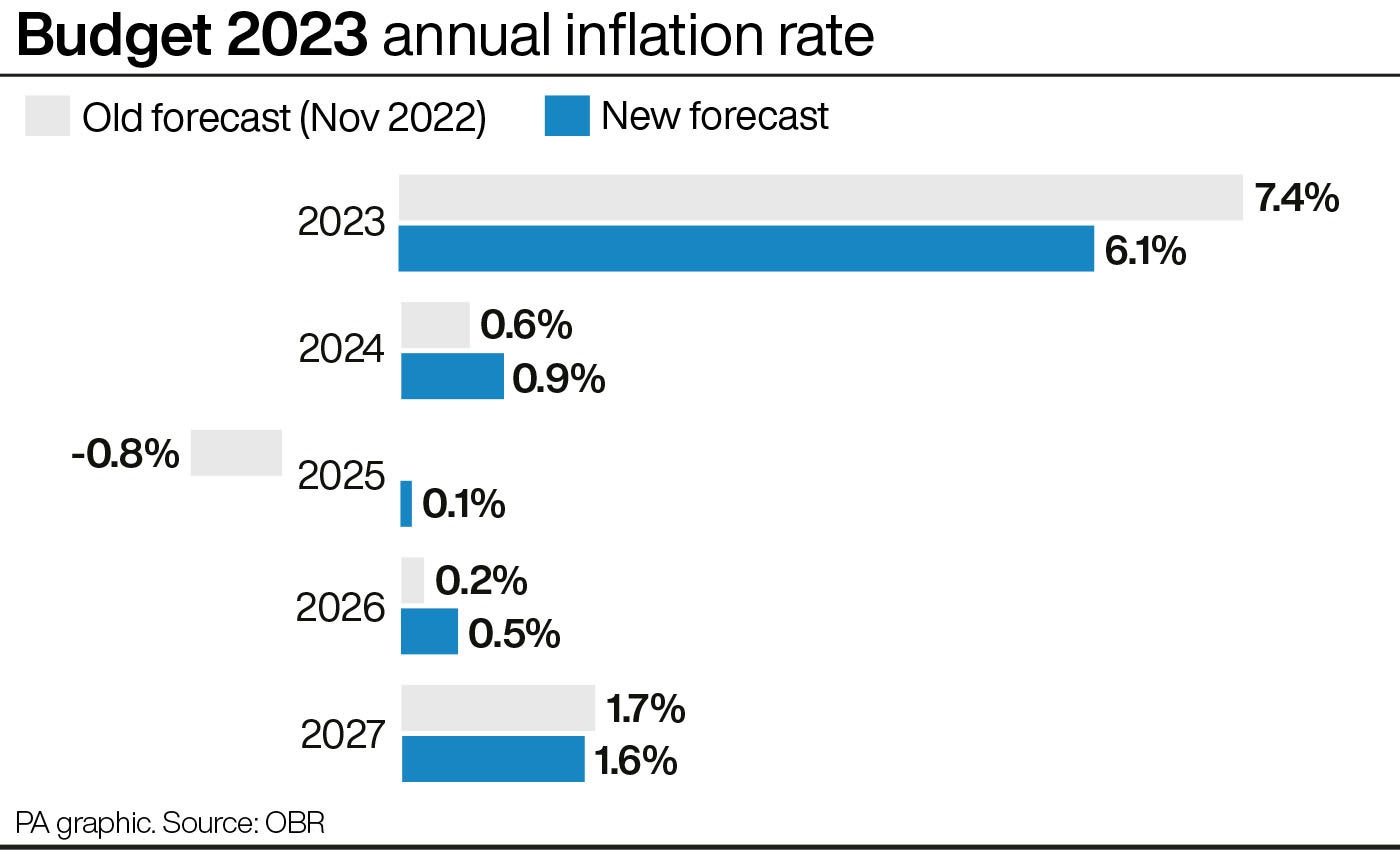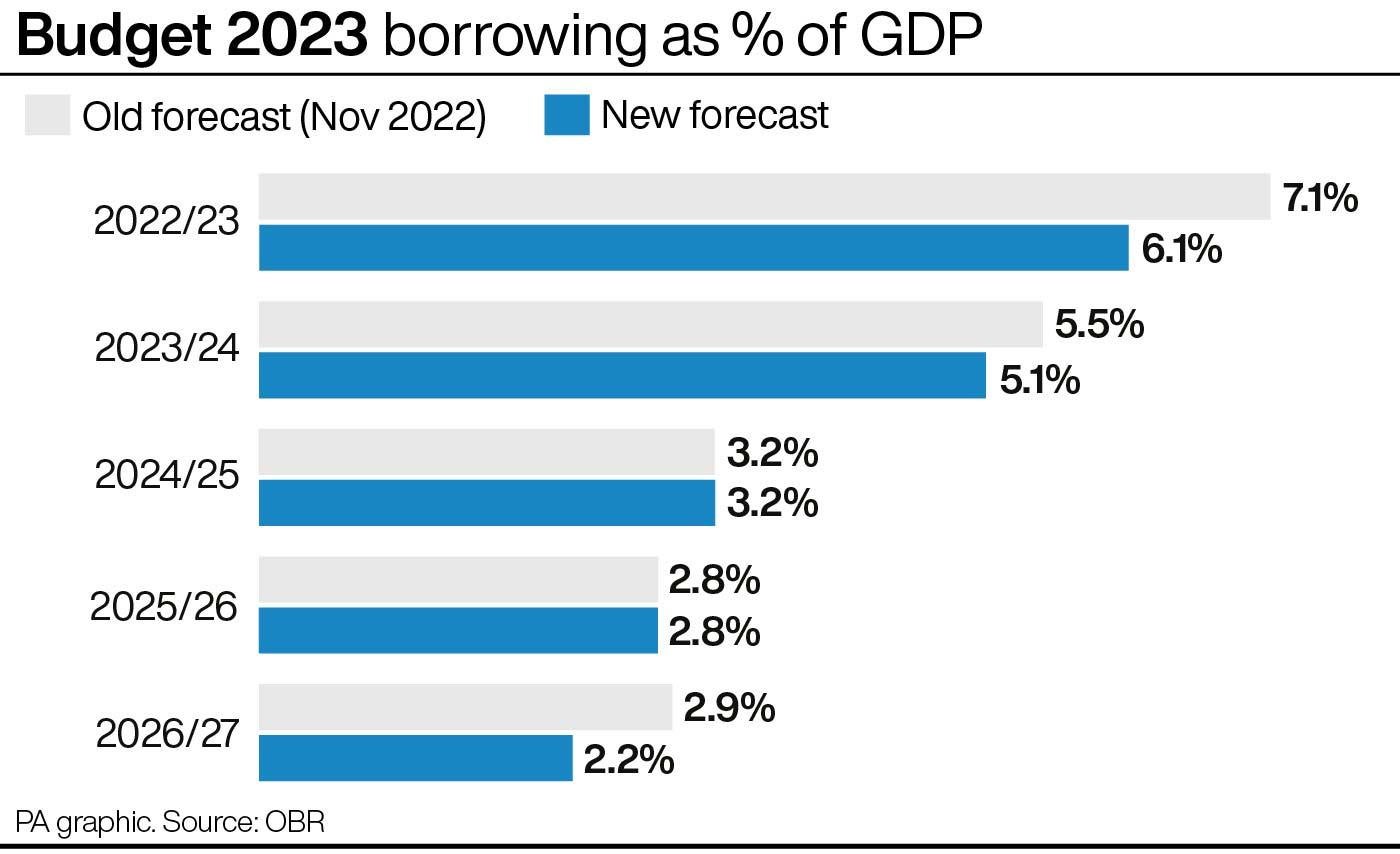Budget 2023: Pensions boost as Jeremy Hunt ditches lifetime allowance
Labour slams ‘giveaway for rich’ as chancellor moves to stop senior NHS doctors from retiring
Your support helps us to tell the story
From reproductive rights to climate change to Big Tech, The Independent is on the ground when the story is developing. Whether it's investigating the financials of Elon Musk's pro-Trump PAC or producing our latest documentary, 'The A Word', which shines a light on the American women fighting for reproductive rights, we know how important it is to parse out the facts from the messaging.
At such a critical moment in US history, we need reporters on the ground. Your donation allows us to keep sending journalists to speak to both sides of the story.
The Independent is trusted by Americans across the entire political spectrum. And unlike many other quality news outlets, we choose not to lock Americans out of our reporting and analysis with paywalls. We believe quality journalism should be available to everyone, paid for by those who can afford it.
Your support makes all the difference.Jeremy Hunt has scrapped the lifetime allowance cap on tax-free pensions savings – which stood at £1m – in a major boost for well-off Britons.
Labour said the chancellor’s decision to unveil generous pensions allowances in the Budget was a tax cut for “the richest 1 per cent”.
The chancellor had been expected to increase the lifetime pension allowance from £1m in a bid to encourage the over-50s to work for longer and reverse the early retirement trend. But in a surprise announcement, Mr Hunt said the lifetime allowance – dubbed the “doctors’ tax” – would be abolished completely.
The chancellor said he had “listened to the concerns” of senior NHS doctors who say pension tax charges are “making them leave the NHS”. The Treasury said it would mean an extra 15,000 people in the workforce by 2028, but could not say how many of them would be medics.
“I do not want any doctor to retire early because of the way pension taxes work,” said Mr Hunt. “Some have also asked me to increase the lifetime allowance ... I have decided not to do that. Instead I will go further and abolish the lifetime allowance altogether.”
The chancellor also announced wider changes to the annual tax-free allowance for pension savings. The amount each person can save in their pension each year before incurring tax will rise from £40,000 to £60,000.
Mr Hunt said: “As chancellor, I have realised the issue goes wider than doctors. No one should be pushed out of the workforce for tax reasons.”
But Labour leader Sir Keir Starmer said ditching the lifetime allowance “benefits those with the broadest shoulders”, arguing that it amounts to a “huge giveaway for some of the very wealthiest” during a cost of living crisis.
Shadow chancellor Rachel Reeves said: “Kwasi Kwarteng’s rabbit out of the hat was a cut in the 45p rate of tax, and [this] chancellor’s is a tax cut for the richest 1 per cent and their pension pots. It shows just how out of touch the Tories are, however many times they revolve around the top table.”

Labour has claimed that changing the lifetime allowance would cost the taxpayer £70,000 for every person who stays longer in the labour market as a result. This is based on the Office of Budget Responsibility (OBR) estimate that the move will mean an extra 15,000 workers contributing to the economy.
Phil Brown, director of policy for People’s Partnership, provider of the People’s Pension, also criticised the plan. He said the changes will not have an impact on the vast majority of pension savers.
Mr Brown said that removing the cap “won’t impact the vast majority of hard-working savers, and means very little to the millions of people who save through automatic enrolment”, adding: “Reform to workplace saving will be the only way to ensure that millions more people can save enough to live on in retirement.”
But Treasury sources insisted the policy was the “quickest and most effective way” to stop so many experienced doctors from retiring early.

Sir Julian Hartley, chief executive of NHS Providers, welcomed the announcement, saying: “For far too long, a series of temporary quick fixes has failed to stem the flow of senior NHS staff either taking early retirement or not taking on extra work for fear of punitive tax bills.”
Mr Hunt’s Budget measures to boost employment will have a “marginal but positive” impact, the Institute for Fiscal Studies (IFS) think tank has said.
Director Paul Johnson said the pension tax changes, designed to encourage a relatively small number of better-off workers to stay in the workforce for a bit longer, were “unlikely to have a big effect on overall employment”.
The OBR estimated that the policies announced in the Budget – including improved childcare support and changes to benefits – could bring 110,000 people into the labour market by 2027-28.
There had been earlier reports that the UK state pension age could rise to 68 sooner than expected, but Mr Hunt has kept the current pension-age arrangements in place.






Join our commenting forum
Join thought-provoking conversations, follow other Independent readers and see their replies
Comments